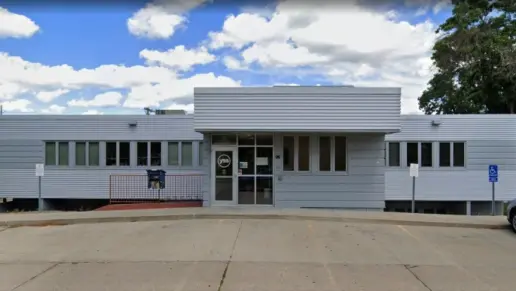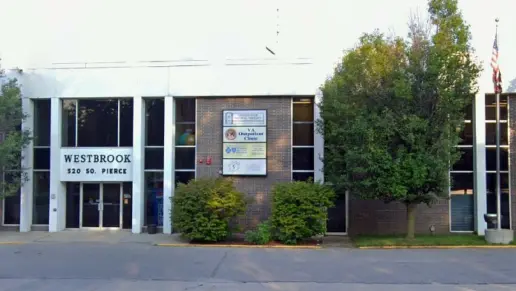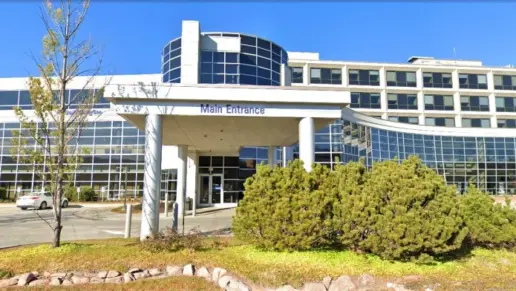Was told I wasn't an alcoholic, but needed to stay. They needed my insurance mo ey to pay for the addicts that stay there for free. Bed bugs. Mold, bad food, sex games after the staff leaves at night, same schedule they put in place in 2008 and it hasn't changed no wonder pe ...
About The Abbey Center
The Abbey Center in Bettendorf, Iowa, is a luxury alcohol and drug rehabilitation center for adults. Their medical and clinical staff take a whole person approach to treatment that encompasses physical, spiritual, and emotional well being. It is a large residential facility with boutique amenities.
The campus is on a private acre of land surrounded by an eight foot wall. It is located in a quiet, serene location.
Clients with severe addiction symptoms or who have struggled with outpatient treatment previously may find inpatient treatment ideal. Clients are given a room for the duration of their stay, and all of their needs, including medical, are met by staff on site. Clients in the inpatient program receive 24 hour care and supervision from their support team.
Treatment is rooted in therapy focused on exploring the causes of addiction, how to cope, overcoming shame, and how thoughts influence behavior. Programs, which clients develop alongside their care team, include individual and group therapy, holistic experiential therapies, 12 step programs, motivational interviewing, and process groups. They also provide non denominational spiritual services.
The outpatient care program is best for clients who are coming from a place of stability and do not need close monitoring. Outpatient treatment uses the same treatment program modalities as the inpatient program but does not have clients live onsite to receive treatment. Outpatient care is provided on a flexible schedule.
PHP is a more intensive form of day treatment programs. Like outpatient care, clients do not live onsite to receive care. However, the schedule is more strict in order to deliver a structured environment for care.
The Abbey provides clients who have completed treatment several opportunities to remain in touch with the program to give and receive support. For example, they may return to engage with 12 step programs to support others in recovery. The Abbey also helps clients connect with local resources to help them continue with their recovery journey.
Facility Overview
Rehab Score
Gallery
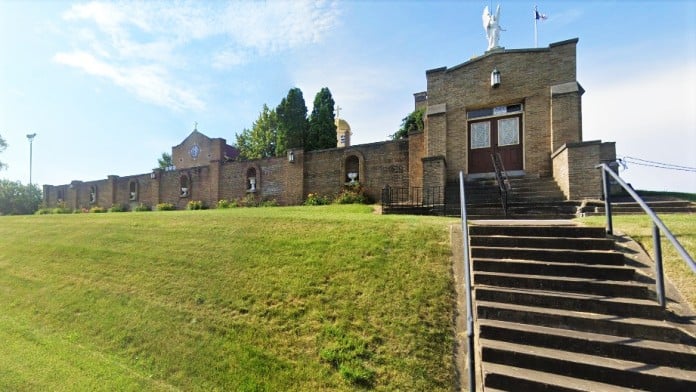


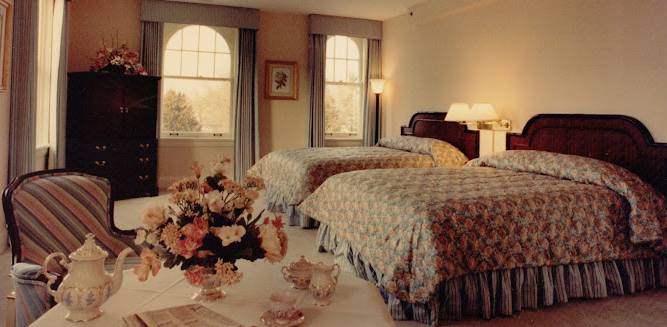

Location
Accepted Insurance
Other Forms of Payment
Private insurance refers to any kind of healthcare coverage that isn't from the state or federal government. This includes individual and family plans offered by an employer or purchased from the Insurance Marketplace. Every plan will have different requirements and out of pocket costs so be sure to get the full details before you start treatment.
Self-pay involves paying for treatment out of your own pocket. You can use savings or credit, get a personal loan, or receive help from family and friends to fund your treatment. If you don't have insurance or your insurance plan doesn't cover a specific program, self-pay can help ensure you still get the care you need.
Military members, veterans, and eligible dependents have access to specific insurance programs that help them get the care they need. TRICARE and VA insurance can help you access low cost or no cost addiction and mental health treatment. Programs that accept military insurance often have targeted treatment focused on the unique challenges military members, veterans, and their families face.
Addiction Treatments
Levels of Care
Treatments
The goal of treatment for alcoholism is abstinence. Those with poor social support, poor motivation, or psychiatric disorders tend to relapse within a few years of treatment. For these people, success is measured by longer periods of abstinence, reduced use of alcohol, better health, and improved social functioning. Recovery and Maintenance are usually based on 12 step programs and AA meetings.
Drug rehab in Iowa is available in many formats. A variety of inpatient and outpatient options provide programs that are tailored to individual needs, making recovery possible for everyone.
Many of those suffering from addiction also suffer from mental or emotional illnesses like schizophrenia, bipolar disorder, depression, or anxiety disorders. Rehab and other substance abuse facilities treating those with a dual diagnosis or co-occurring disorder administer psychiatric treatment to address the person's mental health issue in addition to drug and alcohol rehabilitation.
A combined mental health and substance abuse rehab has the staff and resources available to handle individuals with both mental health and substance abuse issues. It can be challenging to determine where a specific symptom stems from (a mental health issue or an issue related to substance abuse), so mental health and substance abuse professionals are helpful in detangling symptoms and keeping treatment on track.
Opioid rehabs specialize in supporting those recovering from opioid addiction. They treat those suffering from addiction to illegal opioids like heroin, as well as prescription drugs like oxycodone. These centers typically combine both physical as well as mental and emotional support to help stop addiction. Physical support often includes medical detox and subsequent medical support (including medication), and mental support includes in-depth therapy to address the underlying causes of addiction.
Programs


Clinical Services
Cognitive Behavioral Therapy (CBT) is a therapy modality that focuses on the relationship between one's thoughts, feelings, and behaviors. It is used to establish and allow for healthy responses to thoughts and feelings (instead of unhealthy responses, like using drugs or alcohol). CBT has been proven effective for recovering addicts of all kinds, and is used to strengthen a patient's own self-awareness and ability to self-regulate. CBT allows individuals to monitor their own emotional state, become more adept at communicating with others, and manage stress without needing to engage in substance abuse.
Addiction is often described as a “Family Disease”. Indeed, when alcoholism and addiction infiltrate families, usually everyone is affected in negative ways. At The Abbey, they view the families of their patients as their clients, as well. Every week, appropriate family members are invited to participate in Family Programming at The Abbey – including an Alanon support group.
Group therapy is any therapeutic work that happens in a group (not one-on-one). There are a number of different group therapy modalities, including support groups, experiential therapy, psycho-education, and more. Group therapy involves treatment as well as processing interaction between group members.
In individual therapy, a patient meets one-on-one with a trained psychologist or counselor. Therapy is a pivotal part of effective substance abuse treatment, as it often covers root causes of addiction, including challenges faced by the patient in their social, family, and work/school life.
Motivational Interviewing (MI) is a clinical approach to helping people with substance abuse issues and other conditions shift behavior in positive ways. It is more goal-oriented than traditional psychotherapy, as MI counselors directly attempt to get clients to consider making behavioral change (rather than wait for them to come to conclusions themselves). Its primary purpose is to resolve ambivalence and help clients become able to make healthy choices freely.
Creativity is inherently healing, and can help those in recovery express thoughts or feelings they might not otherwise be able to. Creative arts therapy can include music, poetry/writing, painting, sculpting, dance, theater, sandplay, and more. Unlike traditional art, the final product matters far less than the experience of creation and expression itself.
At The Abbey, healthy meals provide a variety of significant benefits. First, their meals are nutritious. Nearly all of their clients at The Abbey suffer from poor nutrition due to their addictive behaviors. Too often, their clients ingest too many calories through the consumption of alcohol – or avoid eating altogether as a symptom of their alcoholism or drug abuse. By preparing healthy meals, their clients begin to get the nutrition their bodies need. Second, their meals are opportunities for healthy social interaction. Clients eat communally, and get the opportunity to connect with one another while “breaking bread” together. In fact, their meals are generally served in the Café, which is open to the clients throughout the day as a healthy, sober “hang out”. Too often, their clients are accustomed to establishing their social lives around meeting in bars, taverns, and pubs. Instead, their Café at The Abbey resembles a neighborhood Starbucks – and serves as a model for clients as a social setting for making healthy connections with friends when they return to their home communities. Third, from research and their own experience, they know that many of their clients run the risk of cross-addictions. For example, some of their clients may suffer from eating disorders (such as anorexia, bulimia, etc.). Their healthy and structured meals help reinforce positive eating habits.
Trauma therapy addresses traumatic incidents from a client's past that are likely affecting their present-day experience. Trauma is often one of the primary triggers and potential causes of addiction, and can stem from child sexual abuse, domestic violence, having a parent with a mental illness, losing one or both parents at a young age, teenage or adult sexual assault, or any number of other factors. The purpose of trauma therapy is to allow a patient to process trauma and move through and past it, with the help of trained and compassionate mental health professionals.
Amenities
-
Yoga Studio
Staff & Accreditations
Staff

Founder

Program Director
Accreditations

The Commission on Accreditation of Rehabilitation Facilities (CARF) is a non-profit organization that specifically accredits rehab organizations. Founded in 1966, CARF's, mission is to help service providers like rehab facilities maintain high standards of care.
CARF Accreditation: Yes
Contact Information
1401 Central Avenue
Bettendorf, IA 52722








